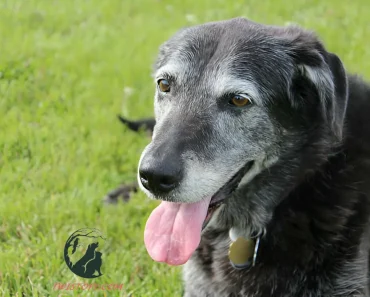If there’s one creature that proves size isn’t everything, it’s the tiny Chihuahua. These little dogs are full of contradictions—trembling nervously one moment and boldly challenging visitors the next. They are among the most loving, cuddly, and affectionate breeds, yet they’re also notorious for nipping at fingers and ankles. So, what’s the truth? Are they fierce warriors or timid weaklings? Most Chihuahua owners would say they’re a mix of both.

Chihuahua
Join us as we dive into the world of Chihuahuas, exploring their origins, unique personalities, and the reasons you should never underestimate them based on their size.
Breed Overview
- Height: 5–8 inches
- Weight: Under 6 pounds
- Lifespan: 14–16 years
- Colors: Black, black & tan, blue & tan, chocolate, chocolate & tan, cream, fawn, fawn & white, red
- Best Suited For: Families with older children, apartment living, and those seeking a loyal companion
- Temperament: Protective, playful, affectionate, and vocal
Chihuahuas come in a variety of colors and coat types, either short-haired (smooth coat) or long-haired.
Chihuahua Characteristics
Energy:
Chihuahuas are typically high-energy dogs that require plenty of physical and mental stimulation to stay happy and healthy. This breed is not for those who prefer a low-energy dog that needs minimal exercise. It’s important to match a dog’s energy levels with your lifestyle to ensure a good fit.
Trainability:
Chihuahuas are generally easy to train, quickly picking up commands and behaviors with minimal effort. However, some may be more stubborn or independent, requiring extra patience and consistency during training.
Health:
The lifespan of a Chihuahua can be influenced by various factors, including their size and potential breed-specific health issues. Regular exercise, a balanced diet, and good hygiene are essential for maintaining their overall well-being and longevity.
Lifespan:
Like many small dog breeds, Chihuahuas can be prone to certain genetic health issues. While not every dog will face these problems, being aware of potential health risks helps prepare you for their specific needs.
Sociability:
Chihuahuas are known to be social dogs, though their behavior can vary. Some are eager to greet strangers, while others can be more reserved or even wary. Regardless of their temperament, it’s crucial to expose Chihuahuas to different situations and social interactions from an early age to help them become well-rounded dogs.

Chihuahua Puppies
Chihuahua puppies are even smaller than their adult counterparts! At 3–4 weeks old, they typically weigh about the same as a can of beans (15 ounces). By 4 months old, they can weigh around 30–50 ounces. Many breeders keep puppies until they’re 12–14 weeks old to ensure they’re more resilient. Vaccinations and microchipping often occur at this stage, as their tiny size makes early procedures a bit more challenging.
Chihuahua puppies commonly have delayed closure of the growth plates in their skull, leading to a “soft spot” called the fontanelle, similar to what is found on human babies’ heads. Unlike most breeds, Chihuahuas may retain open fontanelles past the usual 12-week mark. In some cases, the fontanelle may never fully close, particularly in apple-head Chihuahuas, where it’s known as a molera.
Chihuahuas typically have small litters, with one to three puppies, though more is possible. Apple-head Chihuahuas, in particular, may experience birthing difficulties due to the size difference between the mother’s pelvis and the puppies’ heads. Despite this, Chihuahuas are still relatively easy to find, as breeders often have space for multiple litters at once.
Chihuahua Breed Origin & History
While the Chihuahua is most commonly associated with the Mexican state bearing its name, some theories suggest the breed may have origins in Malta or even China. Early ancestors of the Chihuahua, known as the Techichi, were notably rounder in appearance and were likely bred for food rather than companionship.
When the Aztecs conquered the Toltecs in the 11th century, the role of these small dogs shifted from sustenance to symbolism. They became integral to religious practices, with some historians believing Chihuahuas were bred by crossing Techichis with Xoloitzcuintlis (Mexican Hairless Dogs) to create a refined breed favored by nobility. In some traditions, Chihuahuas were sacrificed to accompany deceased nobles, guiding them through the afterlife.
Unlike many breeds developed for specific tasks, Chihuahuas were bred solely for companionship. This distinction helps explain their temperament. The modern Chihuahua gained attention in North America in the mid-1800s and was officially recognized by the American Kennel Club (AKC) in 1908.
Temperament & Intelligence of the Chihuahua 🧠

As a breed designed for companionship, Chihuahuas exhibit a fascinating mix of traits: they can be devoted, protective, confident, and playful, yet also helpless, anxious, and mischievous.
Are Chihuahuas Good for Families? 🏡
Chihuahuas thrive in social settings and enjoy being part of a group, whether among humans or other pets. Due to their delicate size, they might not be the best match for families with very young children who may be too rough during play. However, for families with older children, they’re ideal companions, offering as much playful energy as they do snuggles.
Because they were bred for love rather than work, Chihuahuas lack the instincts seen in other breeds to herd, hunt, or retrieve. Their primary goal is affection, often becoming attached to a single person while still spreading love to anyone willing to cuddle.
Do Chihuahuas Get Along With Other Pets? 🐶 😽
Chihuahuas often feel more secure as part of a pack and can coexist well with other dogs. Despite their tiny size, they often assert themselves as leaders within a group, a combination of their confident nature and a survival mechanism to avoid being overshadowed.
When introducing a Chihuahua to larger dogs, care must be taken to prevent accidental injuries. With proper introductions and established boundaries, even large dogs can learn to be gentle with their small companions.
Chihuahuas may also get along with cats, but their natural love for a game of chase can make feline friendships tricky, particularly if the cat runs away. For homes with cats, it’s wise to ensure the cat is comfortable with dogs and to trim their claws to protect the Chihuahua’s prominent, vulnerable eyes.
Things to Know When Owning a Chihuahua
Food & Diet Requirements 🦴
Chihuahuas typically require only a small amount of food each day—around half a cup of dry food or 6–10 ounces of wet food. While this may not seem like much, it’s more than enough for their tiny stomachs. Some Chihuahuas can be picky eaters, while others may have a hearty appetite. Skipping the occasional meal isn’t unusual for them, but be cautious about offering treats to compensate—once they get a taste of something special, they may expect it regularly.
Both wet and dry food are suitable options, though dry food should ideally be in smaller pieces to accommodate their tiny mouths.

Exercise 🐕
Chihuahuas enjoy a balance of running, playing, napping, and lounging, making them perfect companions for apartment dwellers or those in smaller homes. Their exercise needs are relatively modest, often satisfied with a short daily walk. However, these little dogs are not fans of bad weather and will often opt for indoor play over venturing out into the rain.
Training 🦮
Training is essential for Chihuahuas, just as it is for larger breeds, even though their small size may make it seem less urgent. Proper training and socialization help ensure a well-behaved and confident dog.
Chihuahuas are lively and curious, often switching between eating, sleeping, and mischievous antics. Their love for chewing and playing means that sudden silence might indicate trouble! House training can also be challenging due to their size—accidents may go unnoticed if you aren’t vigilant.
Crate training is an effective tool for potty training, but the crate should be appropriately sized. A crate that’s too large might encourage the Chihuahua to use one corner as a toilet. Ideally, the crate should just fit their bed and a small water bowl.
Grooming ✂️
Chihuahuas are prone to tear staining, so it’s helpful to include eye care in their daily grooming routine. Wiping their eyes with a gentle cleaner and using a lubricating gel can help keep them comfortable and looking their best.
Health and Conditions ❤️
Chihuahuas are among the longest-lived dog breeds, with an average lifespan of 12–14 years.
Minor Conditions
- Dental Disease
Chihuahuas, like all dogs, have the same number of teeth regardless of size, which can lead to overcrowding in their small mouths. This makes them more susceptible to dental problems. Many Chihuahuas also don’t receive the proper foods, treats, or toys to maintain dental health. Despite their size, they need appropriate chewing options to keep their teeth clean and healthy. - Reverse Sneezing
Reverse sneezing occurs when the soft palate irritates the back of the throat, triggering a reflex to rapidly suck air in through the nose. This is common in brachycephalic breeds and Chihuahuas with delicate facial features or shorter noses. While typically harmless, severe cases may require surgical intervention to trim the soft palate. - Obesity
Chihuahuas are known for their love of food, and their small size makes them particularly vulnerable to weight gain. Overfeeding or giving in to their begging can lead to obesity, which exacerbates other health issues like syringomyelia and heart disease. Portion control and proper nutrition are key.
Serious Conditions
- Syringomyelia
This neurological condition occurs when cerebrospinal fluid (CSF) flow between the brain and spine is disrupted. It is often associated with a defect called chiari-like malformation, which is common in breeds like Cavalier King Charles Spaniels and Chihuahuas. - Heart Disease
Chihuahuas have a higher-than-average risk of heart disease, which can lead to congestive heart failure. While incurable, early detection and proper treatment can greatly improve quality of life. Symptoms include coughing (especially after rest), panting or rapid breathing without physical activity, and fatigue. - Eye Problems
Chihuahuas frequently experience watery eyes due to their eye sockets being too small to properly house their eyes. This leads to tears overflowing instead of draining into the sinuses. Their prominent eyes are also prone to dryness, irritation, and injury. While apple-head Chihuahuas are more affected, deer-head varieties can also face similar issues.

Male vs. Female Chihuahuas
When it comes to size, there’s little difference between male and female Chihuahuas—even fully grown males are not significantly larger than their female counterparts. Personality-wise, males tend to be more assertive and affectionate, while females can exhibit slightly more reserved behavior. That said, individual temperaments vary widely.
3 Little-Known Facts About Chihuahuas

Chihuahua
- They’re Burrowing Experts
Chihuahuas have a natural inclination to burrow—not in gardens but in cozy spots like beds and blankets. They’re adept at finding the warmest, most comfortable place in the house, whether it’s your laundry pile, a linen cupboard, or snuggled up in bed with you. - They’re Sun and Heat Seekers
These tiny dogs adore warmth and sunlight. They thrive in sunny spots or with added warmth, like a heated bed or a hot water bottle. Don’t be surprised to find your Chihuahua sneaking into your bed to snuggle in the warmest spot, often tucked behind your knees. - They Love the Zoomies!
Though Chihuahuas spend much of their day napping or relaxing, they eventually need to release their energy. This often results in “zoomies,” where they race around the house at full speed until their little legs are completely worn out.
Final Thoughts
Chihuahuas are spirited, affectionate, and devoted dogs with a touch of mischief. While selective breeding has exaggerated certain physical traits in some, making them prone to specific health issues, their impressive lifespan often outweighs these concerns.
If you’re looking for a loving companion that doesn’t require much space, is relatively low maintenance, and thrives on warmth and affection, a could be the perfect addition to your home. Their charming and quirky personalities have even won over die-hard fans of larger breeds. With proper care, nutrition, and love, these little dogs can bring endless joy to your life for many years.






